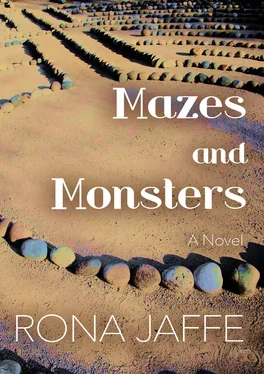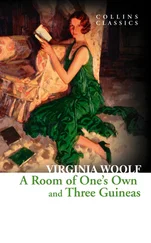Rona Jaffe - Mazes and Monsters
Здесь есть возможность читать онлайн «Rona Jaffe - Mazes and Monsters» весь текст электронной книги совершенно бесплатно (целиком полную версию без сокращений). В некоторых случаях можно слушать аудио, скачать через торрент в формате fb2 и присутствует краткое содержание. Год выпуска: 1981, ISBN: 1981, Жанр: Проза, на английском языке. Описание произведения, (предисловие) а так же отзывы посетителей доступны на портале библиотеки ЛибКат.
- Название:Mazes and Monsters
- Автор:
- Жанр:
- Год:1981
- ISBN:978-1-5040-0844-0
- Рейтинг книги:4 / 5. Голосов: 1
-
Избранное:Добавить в избранное
- Отзывы:
-
Ваша оценка:
- 80
- 1
- 2
- 3
- 4
- 5
Mazes and Monsters: краткое содержание, описание и аннотация
Предлагаем к чтению аннотацию, описание, краткое содержание или предисловие (зависит от того, что написал сам автор книги «Mazes and Monsters»). Если вы не нашли необходимую информацию о книге — напишите в комментариях, мы постараемся отыскать её.
Mazes and Monsters — читать онлайн бесплатно полную книгу (весь текст) целиком
Ниже представлен текст книги, разбитый по страницам. Система сохранения места последней прочитанной страницы, позволяет с удобством читать онлайн бесплатно книгу «Mazes and Monsters», без необходимости каждый раз заново искать на чём Вы остановились. Поставьте закладку, и сможете в любой момент перейти на страницу, на которой закончили чтение.
Интервал:
Закладка:
The discovery that one of those adults — Andy the meshugge —had chosen to betray her immortality by refusing to have a child of his own filled her with horror. It wasn’t that she wanted to play Grandma. She had enough little children to worry about at the hospital. It was that Andy was ending the greatest thing in life she had been able to do.
How could she explain that to him? How could she tell him what a family really was? Even if your children and grandchildren went to the four corners of the earth and you never saw them again, a part of you was walking somewhere on that earth and that mattered. Otherwise you disappeared. Did Daniel know? Could he understand? She didn’t have to worry about Daniel finding a nice girl; the phone never stopped ringing when he was home. The girls called the boys today, not like when she was young. Harold joked and said he wished he were nineteen years old now instead of back then. But she worried about what was going on in Daniel’s head. The sensitive, tender, loving little boy who had told her everything, shown the most amazingly mature perceptions, had grown up and away from her.
All the psychology courses she’d taken didn’t help her when she tried to understand her own child. You couldn’t, after all, read someone’s mind. Maybe Daniel was just going through the natural searching and separating that teen-agers had to do. You couldn’t even call them “teen-agers” anymore — they had to be “young adults.”
Then that made her a middle-aged adult. The time had gone by so fast she couldn’t stand it: a blink of the eye and it was over.
The mixed feelings Robbie always had when he walked into his parents’ house in Greenwich were intensified when he came home for Christmas vacation. Holidays, particularly Christmas, were supposed to be joyful times, but the home in which these holidays were celebrated was tumultuous and filled with anger. Home, as he had always believed other people’s were, was a refuge of warmth and love. In his he felt torn apart, his loyalties going first to one parent and then the other, and sometimes even — as if it were a selfish and unworthy thing — to himself. To protect himself he had adopted a surface calmness. It went with his all-American good looks, his good manners, his gentle ways; so he almost seemed to have erased himself. There was no one who did not like the Robbie Wheeling he had created. His parents’ friends said he made up for the tragedy of the older son.
There were pictures of Hall junior on the piano in the living room, just as there were pictures of Robbie: the happy babies smiling in the sun, the proud young boys with their huge baseball bats, and finally the teen-agers. Robbie’s photos were always the same; he only got older. Hall’s changed a great deal. In his last photograph he seemed almost paranoid, startled by the camera, ready to spring. Cat and Hall senior, his parents, had not seen how extraordinary this photograph was or they would not have put it on display for people to see — but how could they have noticed, when the real Hall junior had looked exactly the same way and they saw him all the time? Robbie himself had only noticed it later, when Hall was gone and he was trying to understand.
Hall’s room was waiting for him exactly as he had left it. The cleaning woman dusted it, and there were fresh sheets on the bed. It was a way of saying he might come back. And what if he did come back and discovered his room had been turned into something else: a den or a guest room for instance? He might become angry and leave again.
Whenever Robbie walked past his brother’s room, which was next to his along the upstairs corridor, he could hardly bear to glance inside, and yet something drew him to look. The past always came back when he saw that plaid bedspread, the maple dresser, even the pile of old magazines, their pages yellow now. They had been old magazines when Hall left; he just hadn’t bothered to throw them away. Merry Christmas.
The house had been quite nice once, done in traditional style with a great deal of flowered chintz. The fabric was faded now and worn down to the stuffing on the arms of the chairs, but his mother never got around to doing anything about it. They did not entertain anymore anyway, except for a few very close friends. His father took people to the country club. He went to the city early and came back late, by which time his wife, who had been drinking alone and storing up the grievances of over twenty years, would fight with him. There was no need to redecorate their environment; the feelings would be the same.
During the holiday Robbie saw his friends from high school, went to parties, called Kate every day, and swam. He wanted to keep in practice, and since the high school was closed for vacation (he knew the coach would have let him in for old times’ sake) he went early every morning to the YMCA. The large, damp, echoing tiled room that smelled of chlorine was empty during the time he chose to go. The diehards who had to get in their laps before the commuter train were gone, and it was too early for the lunch-hour fitness freaks. Robbie warmed up, sprinted, cooled down, and then just did leisurely laps, reluctant to leave. He found swimming hypnotic. Back and forth, turning, moving with careful, endless strokes through that walled, tiled maze that looked like the little squares on graph paper. He was in the maze, and in his dream of the maze; Robbie, Pardieu …
When he had to go home eventually, after his swim, he always felt more relaxed. Still, he was counting the days until he could get back to college, to Kate and his friends, and to the game.
His mother was cooking Christmas dinner for him and his father and her father, who was eighty years old and widowed. Cat, his mother, was the youngest child. There were no aunts, uncles, and cousins this year: some were on holiday in warm places, lying in the sun, others were far away in other states with their own families. The four of them seemed a pathetic little group somehow. His father was in the living room watching football on television, on the new set he’d bought, with a screen that looked like a movie screen. He was drinking martinis. Dinner was not for several hours, and Robbie knew there would be trouble by then. His mother was in the kitchen drinking vodka with her father. She no longer bothered with martinis. Robbie could smell the turkey in the oven. It smelled good, and she had made his father’s favorite chestnut and oyster stuffing. Everybody hoped she wouldn’t burn the dinner as usual, and she knew what they were thinking, so she was sitting in the kitchen even though there was a long time to go and she had set the timer.
“Tell your mother to put out some cheese,” his father told Robbie. “Didn’t we get a wheel of that nice black-rind cheddar from the Pattersons? Sure we did. What’s she doing, waiting for it to spoil?”
Robbie looked at his father. Even at his leisure he was well dressed, like a country gentleman: navy blue blazer, open-neck shirt, black velvet slippers with his initials on them in gold, on his wrist one of the seven watches he had replaced with identical ones. Lean, tall, slightly tanned, a fifty-dollar haircut. His mother hated those black velvet slippers. She called them “his royalty shoes,” and laughed when he wore them.
“Dad wants cheese,” Robbie said, entering the kitchen.
“I am getting it ready for him,” she said. There were so many things going on in her tone that Robbie couldn’t begin to think about it. If her words were glass and shattered on the floor in a hundred pieces each one would be an emotion.
She sliced a wedge of the black-rind cheddar and put it on a cheese board with some crackers and a small knife. She was wearing a dark red party dress. She was still so beautiful, his mother; tall and slim and blond with aristocratic bones. Liquor had not made her puffy or smudged her features. It made her face melt, but only when she was very drunk, and right now she was only partly drunk. She looked like her father. At eighty he looked much younger, and he drank a lot too. He smiled at Robbie.
Читать дальшеИнтервал:
Закладка:
Похожие книги на «Mazes and Monsters»
Представляем Вашему вниманию похожие книги на «Mazes and Monsters» списком для выбора. Мы отобрали схожую по названию и смыслу литературу в надежде предоставить читателям больше вариантов отыскать новые, интересные, ещё непрочитанные произведения.
Обсуждение, отзывы о книге «Mazes and Monsters» и просто собственные мнения читателей. Оставьте ваши комментарии, напишите, что Вы думаете о произведении, его смысле или главных героях. Укажите что конкретно понравилось, а что нет, и почему Вы так считаете.












